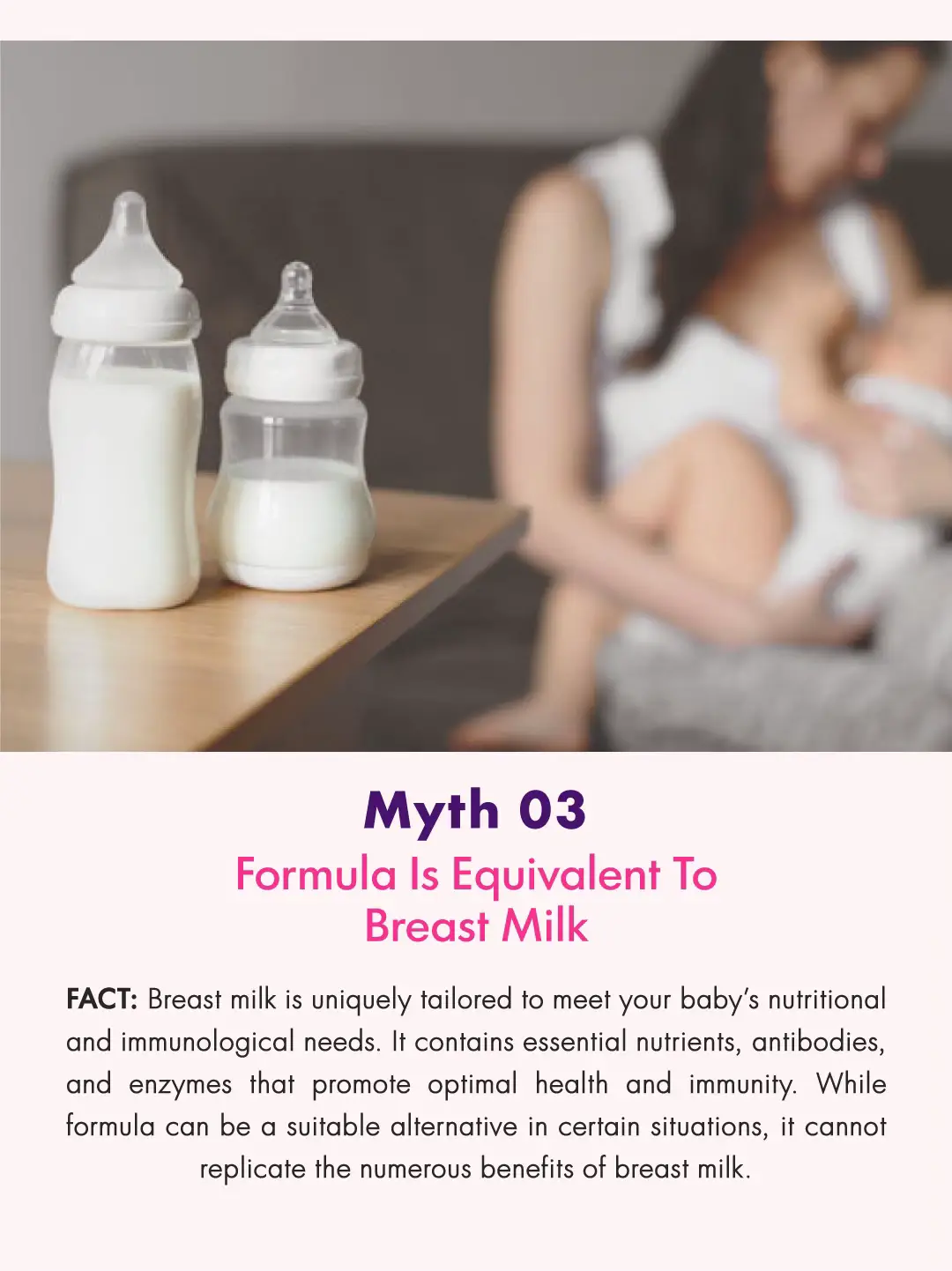Unveiling the Truth: What is Breastfeeding Equivalent To?
Introduction
Every new mother hears widely varying advice and viewpoints about breastfeeding and formula feeding. This article will offer a comprehensive insight into the question that often puzzles many: what is breastfeeding equivalent to? While it's widely accepted that breast milk provides the ideal nutrition for infants, bottle feeding with formula milk can also hold certain advantages. We'll delve into the intricacies, benefits, and controversy surrounding breastfeeding and bottle feeding to better understand the comparison between these two.]
What Is Breastfeeding?
Breastfeeding is a natural, innate process where a mother nourishes her baby with milk produced in her mammary glands, a remarkable source of nutrition for newborns and infants. It is uniquely tailored to the individual needs of each baby, equipping them with a powerful mix of essential nutrients, proteins, and antibodies necessary for holistic growth and development.
- To underline its importance, the World Health Organization strongly endorses exclusive breastfeeding until a baby reaches six months of age, and continuing it along with appropriate complementary foods for up to two years or beyond.
Key aspects of breastfeeding include:
- The act of a baby consuming milk directly from the mother's breasts.
- The supply of vital nutrients and antibodies to the baby through breast milk.
- The recommendation from global health bodies underlining the importance of breastfeeding for infants.
How Do Breastfeeding and Bottle Feeding Compare?
The Case for Breastfeeding:
The advocacy for breastfeeding arises from several essential reasons. Here are a few top factors:
- Balanced Nutrition: Breast milk comes with the perfect blend of vitamins, proteins, and fats required for a baby's optimal growth.
- Availability: Unless the mother is unwell, breast milk is always at the right temperature and ready for consumption whenever the baby is hungry.
- Strengthen Bonding: The skin-to-skin and eye contact during breastfeeding stimulate nurturing feelings in the mother.
- Muscle Development: Latching on to the breast aids in the baby’s jaw muscles' development, contributing to speech abilities.

Merits of Bottle Feeding:
Bottle feeding, typically with formula, also has its unique benefits in specific scenarios. Here are a few to consider:
- Shared Responsibility: Bottle feeding allows other caregivers, including the father, to partake in feeding the baby, providing some respite to the mother.
- Flexibility: Bottle feeding offers a flexible feeding schedule, especially beneficial for working moms.
- Diet Control: With formula feeding, you know precisely the amount of nutrients your baby is getting, making dietary adjustments easier.
- Filling: Formula takes longer to digest, keeping the baby fuller for a longer time than breast milk.
Every parent needs to make an informed choice after considering these pros and cons to decide what is feasible and beneficial for their family.
What Makes Breast Milk a Special Baby Nutrition?
Breast milk provides infants with specially tailored nutrition that evolves to meet the shifting needs of a growing baby. The exceptional composition of breast milk and its numerous biological benefits creates a nearly unbeatable nutritional profile.
The Remarkable Makeup of Breast Milk
- Crafted in Nature's Lab: The incredibly specialized composition of breast milk continuously changes as the infant develops, offering optimal nutrition at every stage.
- Tailored for Each Baby: The breast milk of each mother is uniquely designed for the specific needs of her baby.
- The Perfect Combo: Breast milk contains vital nutrients such as proteins, fats, and carbohydrates in perfect harmony along with crucial antibodies that aid in fighting off infections from the get-go.
The Array of Biological Benefits Offered by Breast Milk
- Shields Against Illness: The antibodies found in breast milk have protective properties, guarding the baby against numerous infections and diseases.
- Long-term Health Advantages: Statistically, babies who are breastfed have a lower risk of developing obesity, diabetes, and certain kinds of cancer later in life.
- Enhanced Cognitive Development: Studies suggest a correlation between breastfeeding and increased cognitive development.
- Reduced Risk of Sudden Infant Death Syndrome (SIDS): Breastfeeding is associated with a decreased risk of SIDS, providing yet another compelling reason to choose this method of infant nourishment.
While breast milk showcases a powerful line-up of nutritional and health benefits, mothers should ultimately choose the feeding option that aligns best with their lifestyle, health condition, and personal comfort.
Can Formula Milk Fully Emulate Breast Milk?
Despite significant progress in the development of infant formula, it remains different from breast milk in terms of nourishment and natural immunity.
The Comparison Between Formula Milk and Breast Milk
Formulas have been scientifically developed to mimic breast milk as closely as achievable, but some elements remain elusive. While formula milk matches breast milk in providing necessary vitamins and nutrients, there are still differences:
• Breast milk's nutritional composition adjust according to the baby's growth and nutritional needs, a feature that formula milk lacks.
• Breast milk comprises of antibodies that enhance the baby's immunity and protect them from infections and diseases. Infant formulas are not equipped for providing this kind of natural immunity.
• Breast milk has been associated with heightened cognitive development in children, a benefit that researchers are still trying to substantiate in formula milk.
Scientific Innovation and Its Boundaries
The scientific community continues to strive for a formula milk proxy that can fully encapsulate the complex and dynamic composition of breast milk.
• Infant formulas have seen significant enhancements over the years, attempting to mimic the nutritional composition of breast milk.
• Despite these upgrades, some aspects, like the immunological advantages of breastfeeding, couldn't be replicated in formula milk as of yet.
To conclude, while formula milk is a commendable facsimile, it cannot entirely mirror the all-encompassing benefits of breast milk. However, it does play an indispensable role in situations where breastfeeding isn't feasible, accessible, or preferred.
Contextualizing the Controversy: Debunking The Myths
Prevalent Myths Around Breastfeeding Equivalents
Acknowledging and Making Sense of the Contrasts
Prevalent Myths Around Breastfeeding Equivalents
Breastfeeding and formula feeding are fertile grounds for misinformation. A prevailing falsehood is the notion that formula milk is practically identical to breast milk. It's critical to debunk this. Indeed, formula milk can provide fundamental nutrients, however, it falls short on emulating the full spectrum of beneficial compounds present in breast milk such as:
• Antibodies: Breast milk is packed with antibodies that protect against a wide array of infections. Unfortunately, formula milk cannot replicate this.
• Unique composition: The composition of breast milk changes over time to meet the growing baby's needs. Formula milk can't emulate this adaptivity.
• Hormones: Hormones and growth factors present in breast milk contribute to infant development — another factor missing in formula.
Acknowledging and Making Sense of the Contrasts
Understanding and respecting the differences between breastfeeding and formula feeding is crucial. The choice between breastfeeding or formula feeding goes beyond mere nutritional content:
• Convenience: Formula feeding can offer more flexibility and let other caregivers participate in feeding.

• Medical reasons: Some mothers can't breastfeed due to medical issues. In such cases, formula becomes a necessity.
• Work or lifestyle: Some mothers choose formula feeding due to work commitments or lifestyle choices.
The choice is deeply personal and should consider factors that stretch from the mother and baby's health to their living circumstances. What's important is the child getting the required nutrition needed for growth and development.
Conclusion
Breastfeeding and formula feeding both have roles to play, and the choice between the two depends on many variables. While breast milk is, without doubt, the gold standard for infant nutrition, formula milk brings indispensable advantages in certain circumstances. It's critical to make informed decisions, keeping the baby's health as a priority.
Related FAQs about what is breastfeeding equivalent to
Is there a direct equivalent to breastfeeding?
There isn't a direct equivalent to breastfeeding. While formula milk seeks to mimic the nutritional compositions of breast milk, it lacks the adaptive properties and the in-built immunity that breast milk provides. However, formula milk is a practical alternative when breastfeeding is not possible or preferred.
Why is breastfeeding considered the best nutrition for infants?
Breastfeeding is considered the best nutrition for infants because it provides all the nutrients a baby needs in the right proportions. It is easily digestible, helps in boosting the baby's immunity system, facilitates bonding with the mother, and lowers the baby's risk for many illnesses.
Can the formula ever replace breast milk completely?
Despite scientific advancements, formula milk can't completely replace breast milk. It cannot replicate the dynamic, adaptiveness of breast milk and lacks its immunity-boosting antibodies. However, formula milk does provide many vital nutrients, making it a valuable alternative when breastfeeding isn't feasible.


